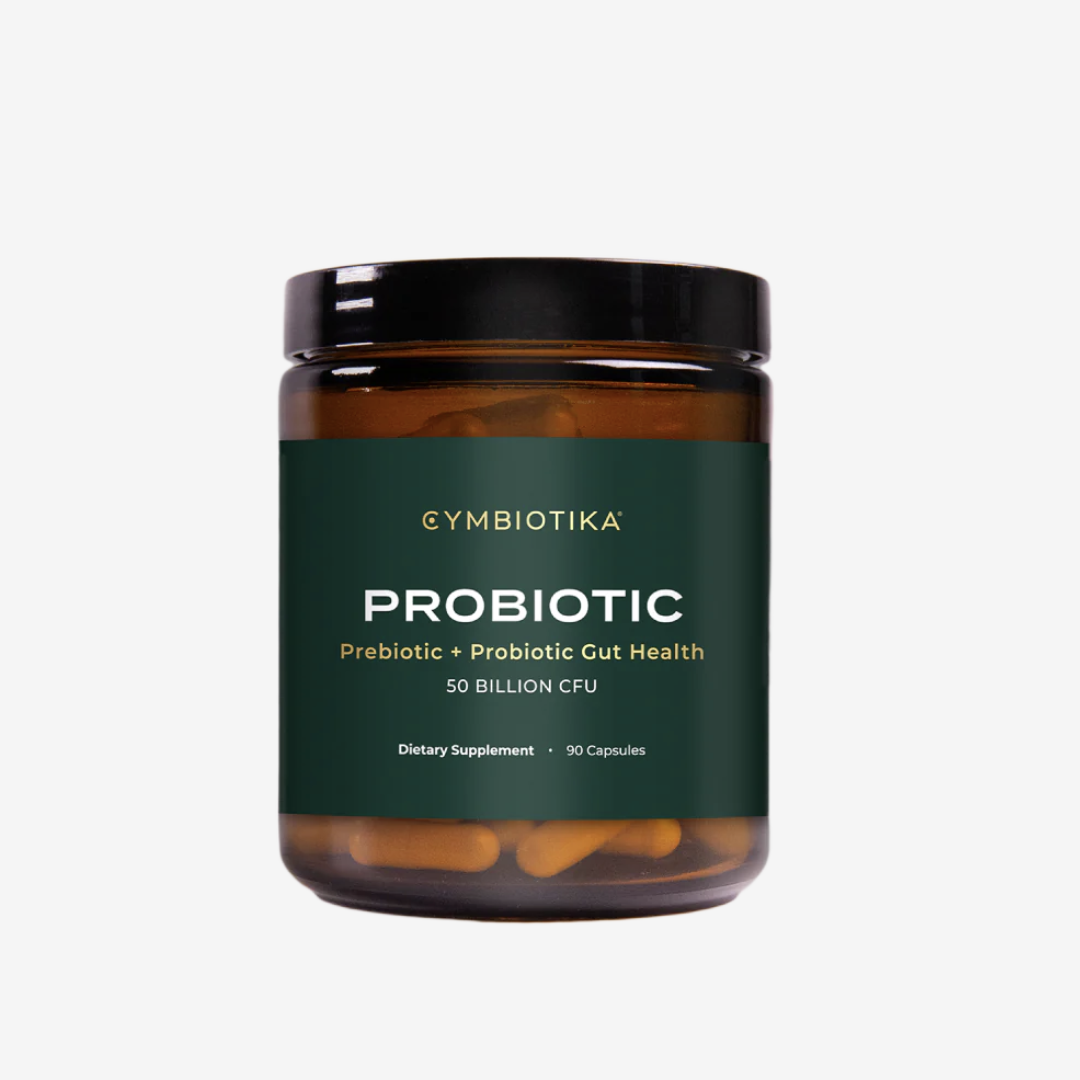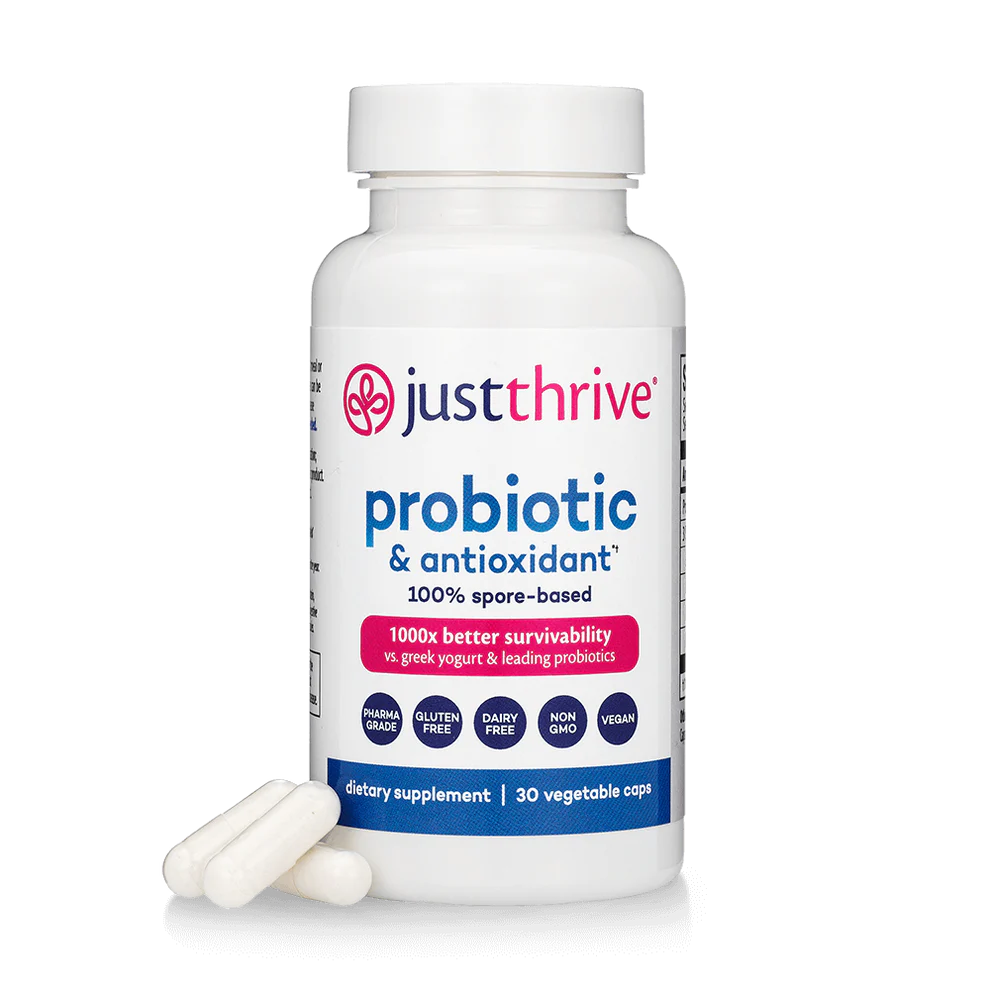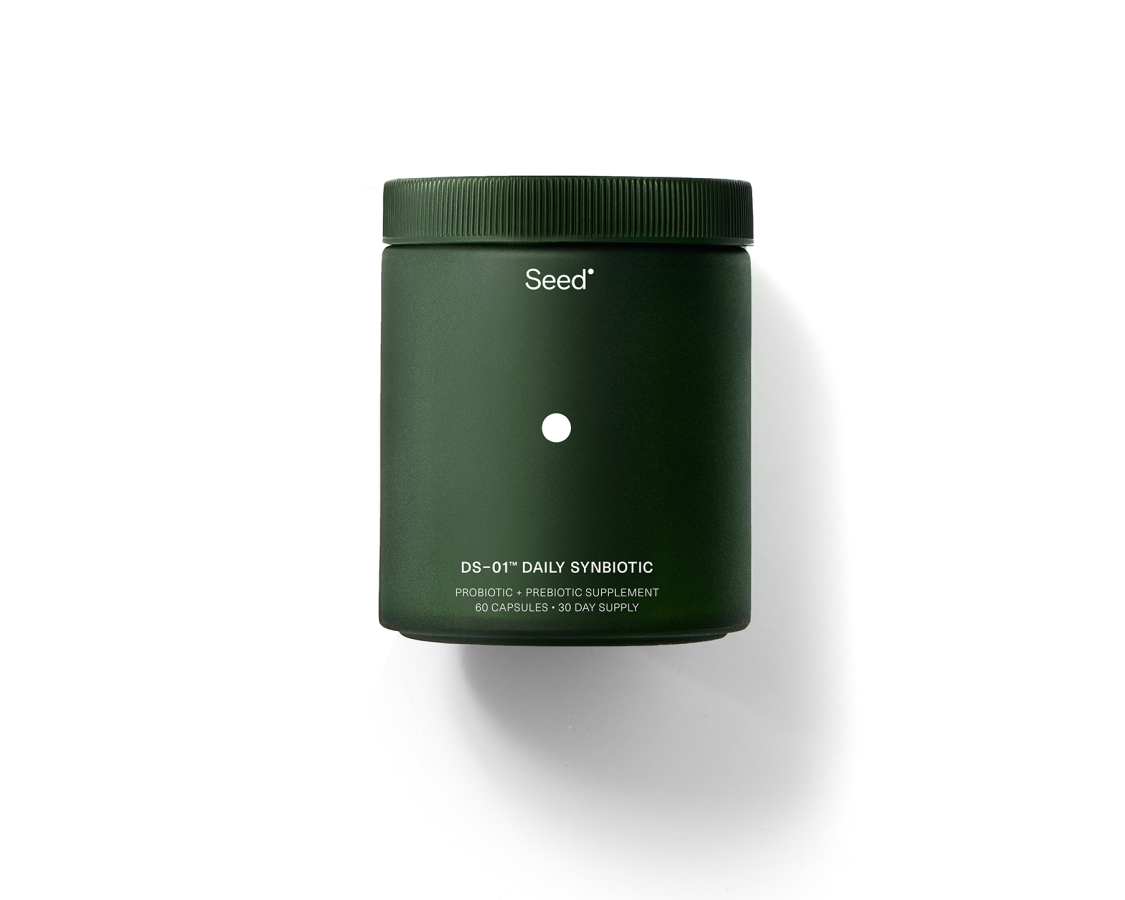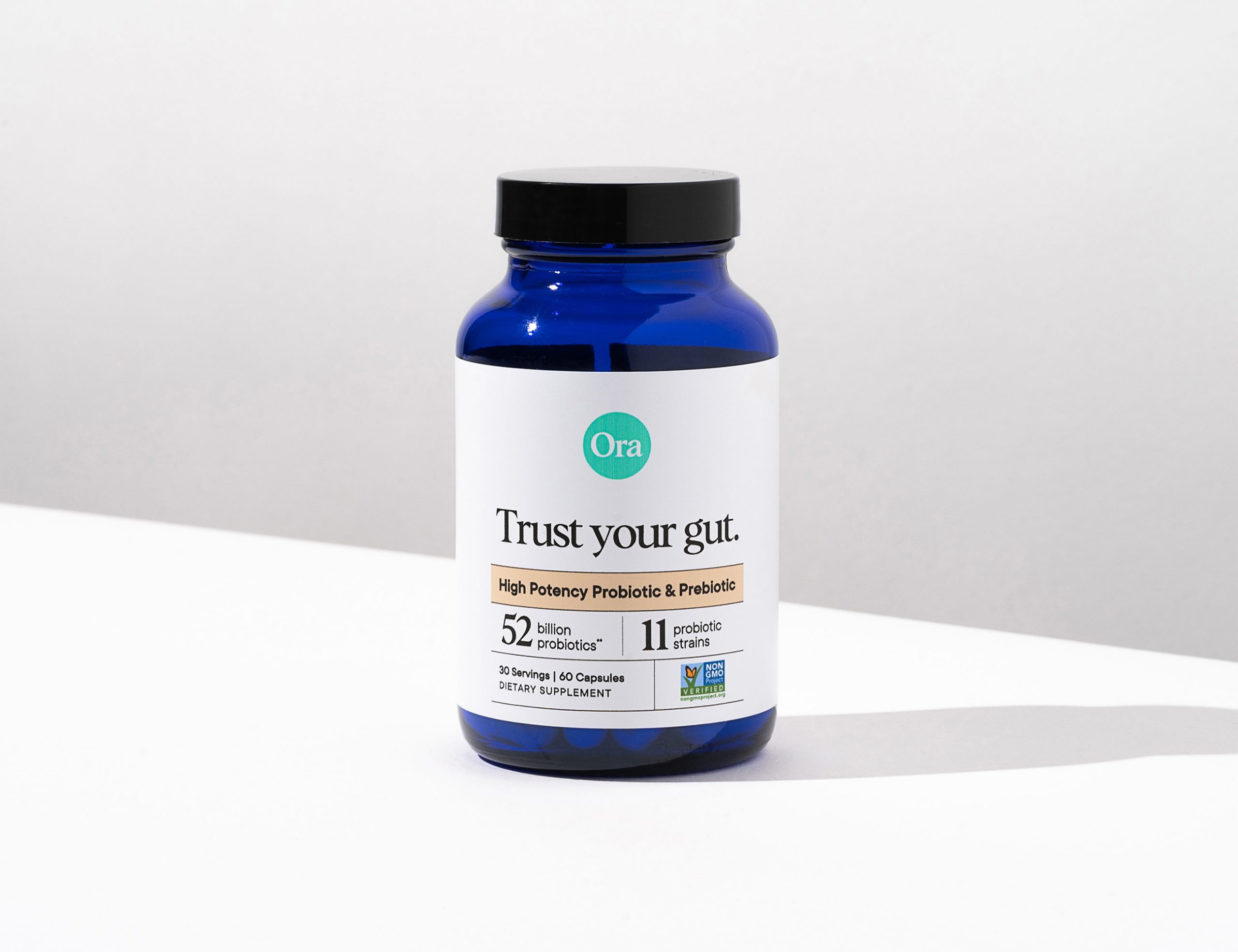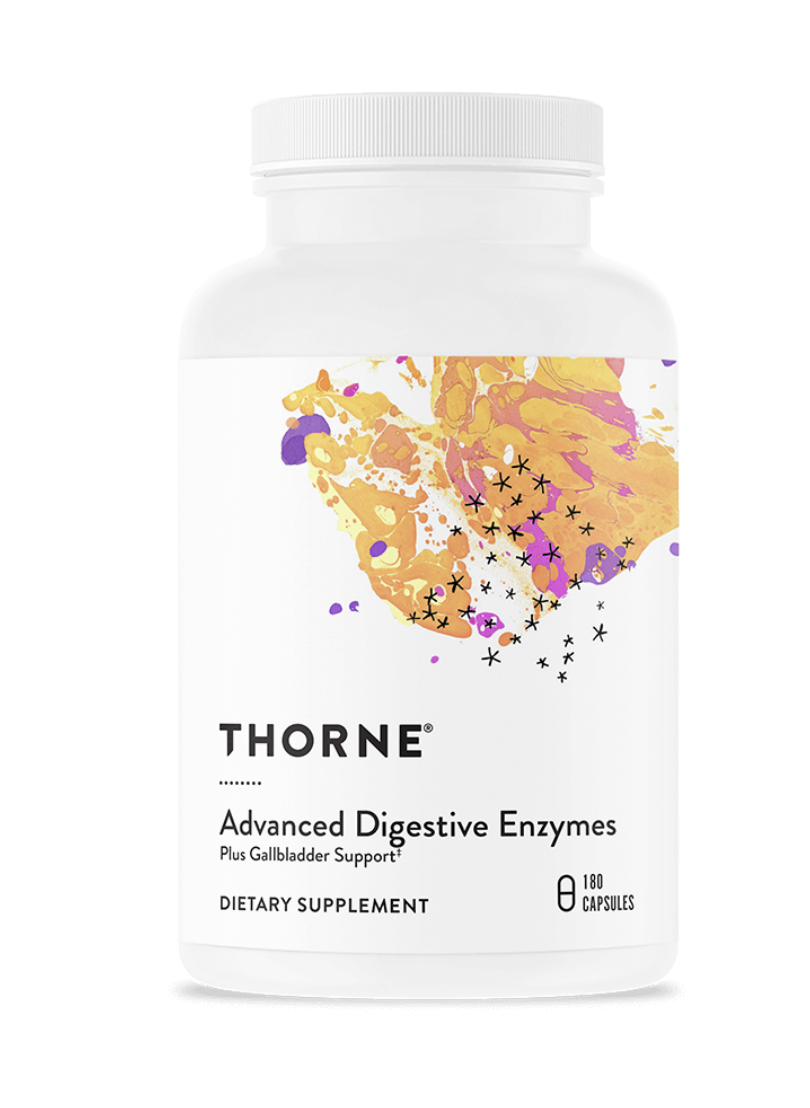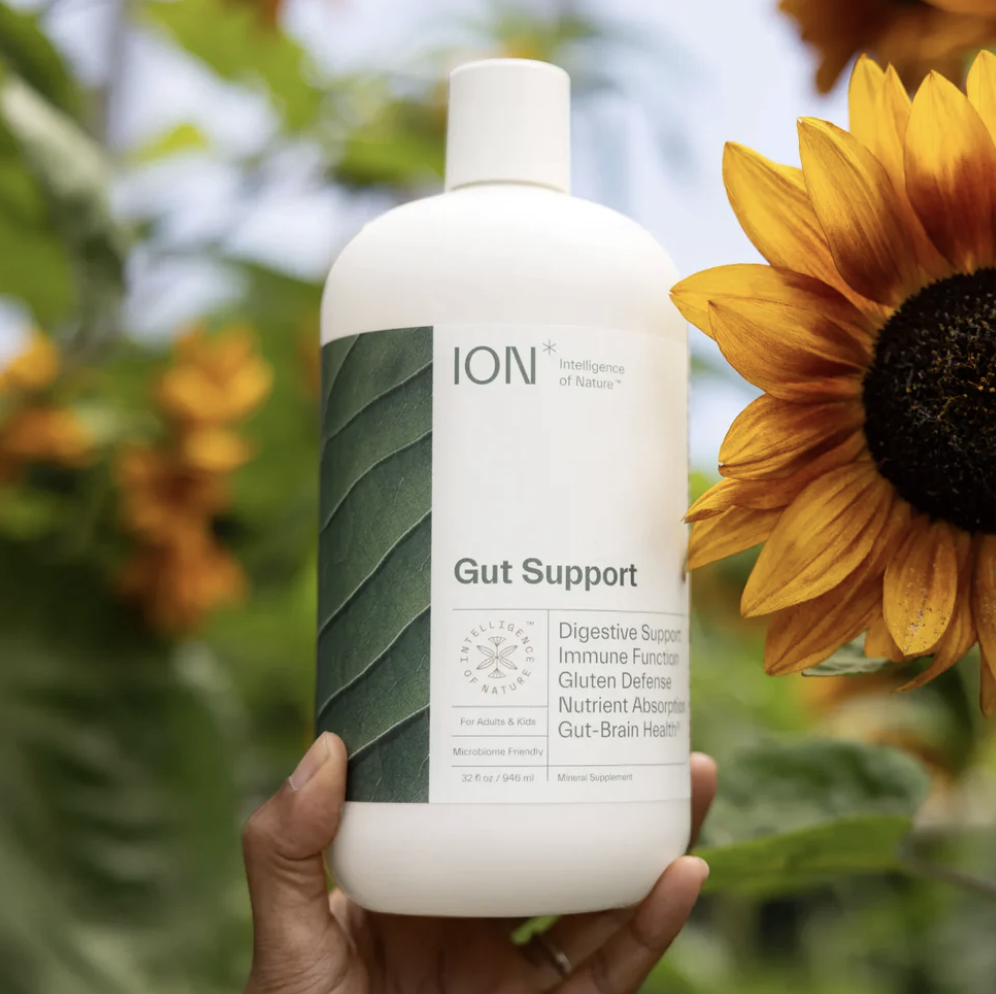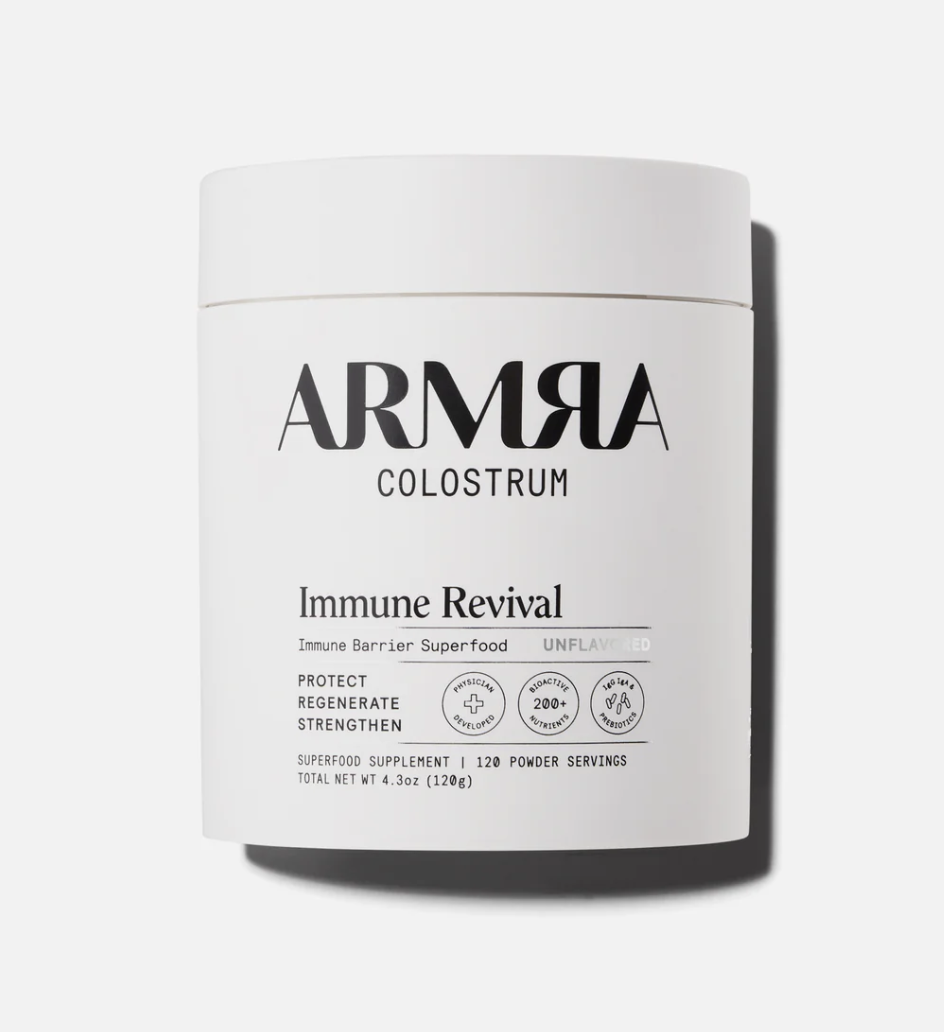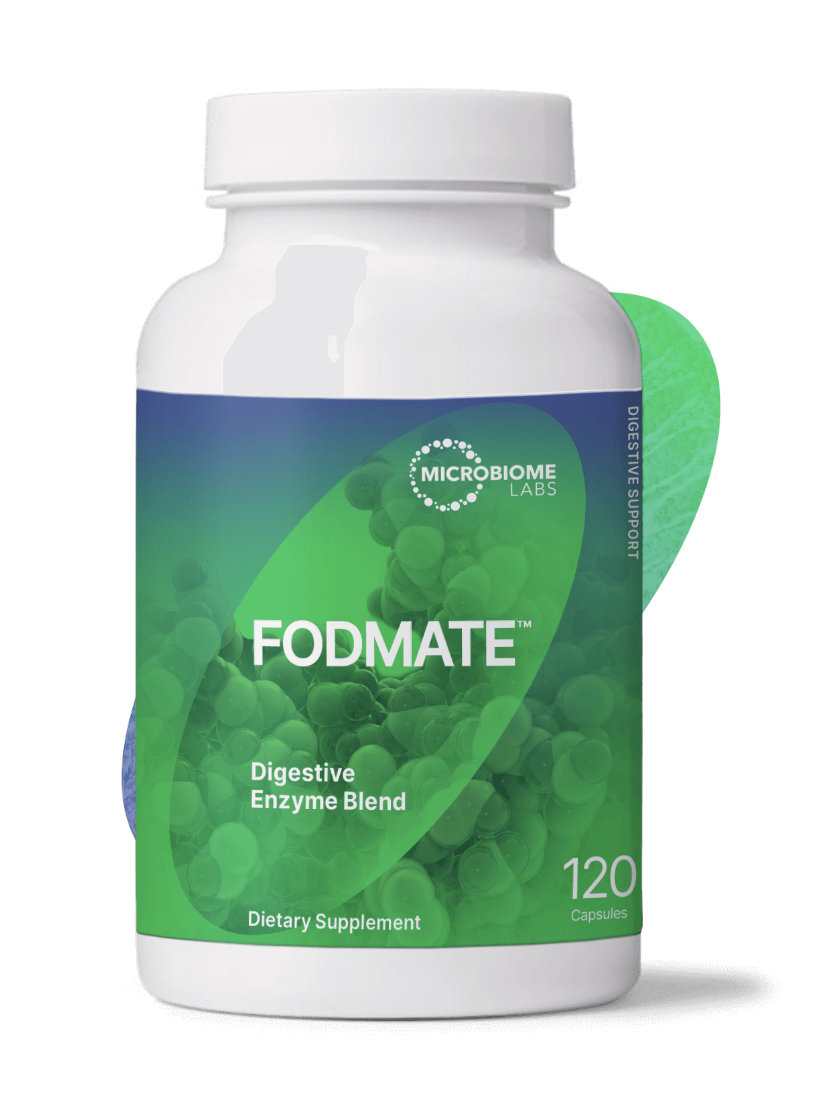We may receive a portion of sales if you purchase a product through a link in this article.
In the quest for better gut health, we’ve tried it all (err, most). From probiotics to prebiotics, enzymes to elixirs, we’ve always hoped for the best… but led with a dose of skepticism. After all, it’s hard to know if your probiotic is actually doing anything. Been there, experienced that. Plus, not all supplements are created equal. With that in mind, do gut health supplements live up to the hype? Or—are we all being duped into believing a specific pill, powder, or capsule holds the promise of a healthier digestive system? Today, we’re digging deep into the debate.
Spoiler alert: once you separate science from the sensationalism, certain supplements are the real deal. And good news! We’ve parsed out the best gut health supplements for you. Get our tips and tricks for supporting your digestive system in a simple yet effective way.
Featured image by Ashleigh Amoroso.

Why does gut health matter?
In many ways, your gut is a bustling control center. It’s the place where everything from digestion to mood regulation come together. In other words, gut health isn’t just about minimizing bloating. It’s a powerhouse that affects your entire well-being.
Home to trillions of microbes, your gut microbiota is working around the clock to digest food, extract nutrients, and shield you from toxins. Simultaneously, it’s bolstering your immunity and encouraging a happier mind. Whether you’re chasing fewer tummy woes or a better demeanor, nurturing your gut health is paramount.
Looking for more gut-friendly habits to improve your health? Check out this guide.


How to Support Your Digestive System
Fortunately, supporting your digestive system—through lifestyle and nutrition choices—isn’t rocket science (nor should it put a dent in your wallet). Below are a few key tips to help you maintain a happy gut.
Prioritize a balanced diet
No surprise here. When possible, consume a variety of whole, minimally-processed foods: low-glycemic fruits, cooked vegetables, sprouted whole grains, lean proteins, and healthy fats.
Enjoy fermented foods
Incorporate probiotic-rich foods like yogurt, kefir, sauerkraut, and kimchi into your diet. These encourage the growth of beneficial gut bacteria.
Limit inflammatory oils and refined sugars
High-sugar and highly processed foods can disrupt your gut microbiome’s balance. Focus on nourishing oils—like extra-virgin olive oil, coconut oil, and avocado oil—as well as raw honey, pure maple syrup, and date syrup (in moderation).
Stay hydrated
Drink up! Filtered water, that is. Staying hydrated helps maintain the mucosal lining of your digestive tract and aids in digestion. Digestive teas work great as well.
Eat mindfully
Easier said than done, but try to eat slowly (put your fork down between bites), chew your food thoroughly, and savor your meal. All of these habits aid in the digestive process. Additionally, minimize overeating, as it can put unnecessary strain on your digestive system.
Exercise regularly
When it comes to gut health, physical activity is two-pronged: it helps regulate bowel movements and is a stress-reliever (stress, as we know, can put strain on your digestive system).
Get adequate sleep
Aim for 7-9 hours of quality sleep per night. This allows your body to rest and repair, including your digestive system.


Do you need a gut health supplement?
Depends, of course! In many cases, maintaining a balanced diet and low-stress lifestyle can naturally support gut health. However, certain circumstances (digestive disorders, antibiotic use, or specific dietary restrictions) may warrant targeted supplements. When in doubt, chat with your healthcare provider. They can help determine if a gut health supplement is a beneficial addition to your wellness routine. Ultimately, a supplement should be part of a broader strategy for maintaining a healthy gut.
How to Choose the Best Gut Health Supplement
Overwhelmed by your variety of options? We can help. To make an informed decision, consider the following factors:
- Consult with your doctor. As mentioned, they can assess your specific needs, health goals, and any underlying medical conditions to provide personalized recommendations.
- Identify your goals. Determine your primary reason for considering a gut health supplement. Are you looking to alleviate specific digestive issues, improve overall gut health, or boost your immune system? Understanding your goals will help you choose the right supplement.
- Research ingredients. Look for supplements that contain clean, minimal, and scientifically-proven ingredients. Furthermore, look for reputable brands that adhere to good manufacturing practices. These products are more likely to be of high quality and free from contaminants.
- Probiotic strain and CFUs. Check the supplement label for specific probiotic strains (e.g., Lactobacillus acidophilus, Bifidobacterium bifidum) and the number of colony-forming units (CFUs). The appropriate strain and CFU count can vary depending on your needs—again, your healthcare provider can help with this.
- Prebiotic content. Prebiotics are substances that feed the beneficial bacteria in your gut. Supplements containing prebiotic—like inulin, chicory root, or fructooligosaccharides—can be beneficial.
- Allergen information. If you have food allergies or sensitivities, check for potential allergens in the supplement, such as dairy, gluten, or soy.


Are refrigerated gut health supplements superior?
Not necessarily. Refrigerated gut health supplements—like probiotics—aren’t inherently superior to non-refrigerated ones. The need for refrigeration depends on the specific strains in the supplement. In other words, some strains are more sensitive to temperature and moisture than others. Refrigeration can help preserve their viability, ensuring they remain active and effective. However, non-refrigerated probiotics can also have a stable shelf life if properly packaged.
Trending: Soil-Based Probiotics
Have you heard of soil-based probiotics? Also known as spore-forming probiotics—or SBOs (soil-based organisms)—they’re a specific type of probiotic supplement. As their name suggests, SBOs contain bacteria strains naturally found in soil. Unlike traditional probiotics, these contain a protective shell. This is particularly helpful for navigating the stomach’s acidic environment. In other words, this shell allows the probiotic bacteria to remain dormant until they reach the intestines—where they can germinate and become active.


The Best Gut Health Supplements for Every Need
Cymbiotika Probiotic
Crafted with exceptional ingredients, Cymbiotika’s Probiotic includes 19 probiotic strains, plant-based prebiotics, and a unique blend of amino acids. Their formula is a quadruple thread: it helps balance gut microbiome, boosts energy levels, lowers stress, and reduces digestive issues.
Just Thrive Probiotic
Want to give SBOs a whirl? Try Just Thrive! It’s spore-based, meaning that it actually makes its way to your digestive tract—where it’s needed.
Seed DS-01 Daily Synbiotic
Scroll social media, and you’re bound to find an influencer touting their love for Seed. But we get the hype. As with any supplement, the key is to be consistent with your regimen. However, hopefully you’ll notice an improvement in digestion and regularity in a matter of weeks.
Ora Trust Your Gut High Potency Probiotic & Prebiotic
If antibiotics were (or are) a part of your health journey, consider adding Trust Your Gut to your home apothecary. Best of all, this probiotic doesn’t need to be refrigerated and contains 11 clinically-studied and acid-resistant strains.
Thorne Advanced Digestive Enzymes
A true staple, these enzymes help keep the digestive system moving and lessens discomfort after a large or hard-to-digest meal. This supplement is also known to support the gut’s natural aging process or after gallbladder removal.
ION* Gut Support
Ready to live your best gut-happy life? This liquid wellness supplement diversifies your microbiome, supports healthy digestion, defends from toxins, and improves nutrient absorption. It’s also proven to strengthen the gut lining, improving overall gut function. Plus, it’s gentle enough for your whole family!
ARMRA Colostrum
If you haven’t hopped on the colostrum train, this supplement is worth the hype. Strengthen your entire body’s health—skin, lung, gut barrier, immunity, etc.—with this powerful and potent powder.
Microbiome Lab FODMATE
Familiar with pesky FODMAPs? If so, take a peek at this supplement. Microbiome Lab’s innovative enzyme formula is designed to provide relief from occasional cramping, bloating, gas, abdominal pain, diarrhea, and constipation that may result from the consumption of high FODMAP foods.
Emma Daily Digestive Supplement
Science-backed and doctor-approved, Emma’s formula harnesses the power of natural ingredients to soothe your digestive woes. With licorice, star anise, quercetin, berberine, and resveratrol, Emma gets to the root cause—helping not only to relieve symptoms like bloating and constipation but to also support strong gut health in the long-term.

Emma Daily Digestive Supplement
$59


